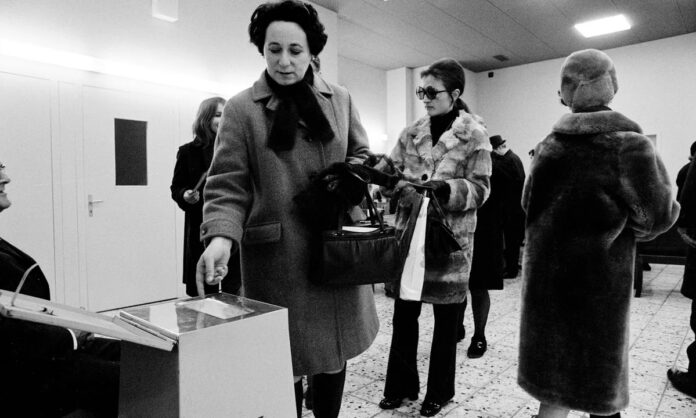- 5.5 million Voters to Choose 200-seat National Council and 46-seat Council of States
- Right-wing Swiss People’s Party (SVP) will consolidate its position as the largest parliamentary group in the elections,SRG SSR
- Swiss people don’t expect ‘any change’ after electionsGENEVA: Switzerland is gearing up for federal elections, with the 200-seat National Council and the 46-seat Council of States to be decided in the coming vote. Approximately 5.5 million eligible voters have already had the option to cast their ballots, with around 90% of voters choosing to vote by mail rather than in person.
The Swiss Postal Administration distributed voting envelopes at the start of October, and this postal voting continued until October 19. The voter turnout in Switzerland, which holds federal elections every four years, has consistently remained below 50% for nearly five decades.
The right-wing Swiss People’s Party (SVP) is expected to strengthen its position in these elections, with concerns about immigration dominating the political discourse, while the fallout from Credit Suisse is affecting pro-business politicians. According to a poll by public broadcaster SRG SSR, the SVP is projected to secure 28.1% of the vote.
The center-left Social Democrats are anticipated to follow with 18.3%, while the Center Alliance is projected at 14.3%, based on the same poll. Meanwhile, the Greens are expected to receive less than 10%, marking a 3.5% decrease from the previous election, with a survey by the Swiss Broadcasting Corporation showing them at 9.7% of the total vote.
According to the Federal Statistical Office (FSO), the number of candidate lists and candidatures reached record levels in 2023, with 5,909 candidates on 618 lists across the cantons. Of these candidates, 41% are women, and nearly 30% are under the age of 30.
Despite the elections, expectations for significant changes in the composition of the Federal Council, Switzerland’s government, remain low. The Swiss political landscape is characterized by stability, and the elections are unlikely to lead to drastic shifts.
Low voter turnout in Switzerland is attributed to a lack of concern among the population, with many feeling that the country’s stability means elections have little immediate impact on their lives. While Switzerland boasts a highly developed democratic system, some individuals may opt not to participate due to an absence of expected change.
Following the federal elections, another election is scheduled to select all seven members of the Federal Council on December 13, who collectively form the Swiss government. The Council’s president is elected for a one-year term and rotates among members based on their seniority, maintaining Switzerland’s coalition government tradition for over 60 years.





